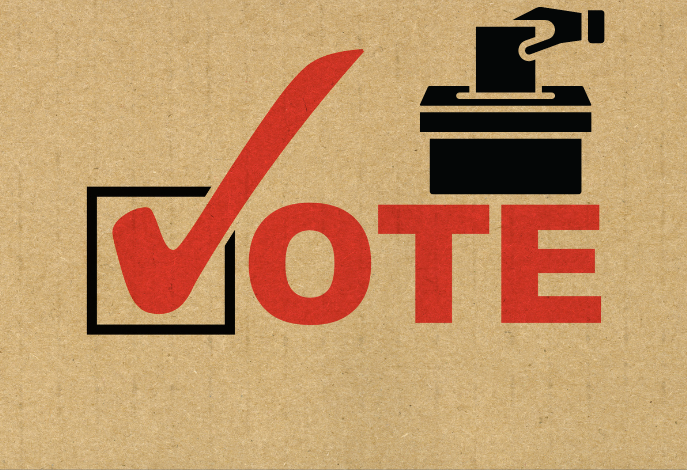Whom Shall I Choose?

With an election cycle moving into full swing, there is a question that should be burning in everyone’s mind: “Whom shall I choose?” This question is always an important one. Now, it is not of utmost importance because the fate of the world is at stake—while that might be the case, or at least feel like it—your choice is of utmost importance because it is a moral decision for which you will have to give account to God.
One day we will all stand before God and will have to give an account of every moral decision we ever made, and that certainly includes every vote that we will cast. You will not stand before God and give a defense of your votes; rather, God will place your votes—as He will with every other moral decision—up against His Law, and if your vote fails to meet His standard, it will be a condemning piece of evidence as to why you are guilty and will be thrown in Hell (if you have rejected Jesus Christ as Savior), or it will be consumed by holy fire and will leave an embarrassing void in the heavenly rewards that you will have to present to your Lord and Savior, Jesus Christ.
At the end of your earthly life, the moral decisions you make every day are most important, and voting certainly qualifies as some of the weightier decisions that you will make because voting not only impacts you but it impacts your neighbor and those who will one day inhabit the nation that you have been given to steward.
Fortunately for you and I, God has given us a standard from which to make our decision, and that standard is found in the Law of God, specifically in Exodus 18:21: “Moreover, you shall select from all the people able men, such as fear God, men of truth, hating covetousness; and place such over them to be rulers of thousands, rulers of hundreds, rulers of fifties, and rulers of tens.”
This simple verse gives us the guide on how to choose leaders, and the minimum qualifications that they must have are found in these four simple criteria:
- Able
- Fear God
- Lovers of Truth
- Not Covetous
While I believe these qualifications are fairly simplistic, let me say just a little as to the importance of them.
If the candidate is not able, it will bring complete incompetence to the position, and there will be a trickle-down of great pain for all to be felt. These qualifications are true of any and all leadership positions—from rulers of tens to rulers of millions—a lack of ability is something we have probably all seen before on a smaller scale. It might be the supervisor who got their position simply by being at the workplace the longest, or perhaps it is the student who got placed in charge of the school project simply because everyone got a chance to be in charge. In these smaller examples, the pain might have simply been a poor grade or a terrible work environment, but when an unable person becomes president, it is much more catastrophic.
If the candidate does not fear God (the God of the Bible, I might clarify), there will be no standard for him to hold. The organic law of the United States affirms this truth when our Founding Fathers signed their name to the Declaration of Independence and pointed to their rights being tied to “the Laws of Nature and Nature’s God.” When those in public office do not fear God, we quite literally see the murder of tens of millions of innocents—just look at what has happened since the ill-fated year of 1973!
If the candidate is not a lover of truth, then he will be a liar. This is why it is important to look at the character and record of the candidate. Words certainly matter, but they only matter if they are true. Who cares if you agree 100% with their speech if they are not going to fulfill any of what they say? God’s standard is that every candidate should deliver on the promises they make.
The final standard is that the candidate should not be covetous. Simply put, they must not be able to be bought or paid off. While there is a bit of humor in the idea that politicians should be like NASCAR drivers and wear their “sponsors” emblems on their suits, this is not the standard we should seek. We ought to vet the candidates thoroughly and only find ones who cannot be bought, not because they have ample money, but because they have ample character. A man who has cheated on his wife multiple times will certainly cheat on you, and a man who consistently caves to special interests certainly will do so again and sign an omnibus bill that will strap a millstone of debt around your children’s and grandchildren’s necks.
While these four criteria seem to be simple and basic enough as a minimum standard on whom we should vote for, they seem to always be met with a lot of objections and misunderstandings.
The first objection or misunderstanding seems to always be presented in this way: the hearer crosses their arms, cocks their head back, and while the smile leaves their face they say, “So you think the candidate must be perfect, don’t you know there was only one perfect person and His name is Jesus Christ!”
If that is your reaction to Exodus 18:21, then bear with me as I enlighten you on what happened in the context of the verse. Moses accepted the standard and appointed men who fulfilled the qualifications to be over tens, hundreds, and thousands. There were literally hundreds of people who met these qualifications in the much smaller nation of Israel than the United States. Not one of these men was perfect, but they were all able, they all feared God, they all were characterized as truthful, and not a one of them was known for being covetous.
In meeting this minimum standard, it mitigated potential problems and downfalls in Israel’s leadership. Understand, it didn’t mean that there weren’t problems and that the leaders didn’t fail miserably at times, it simply put a standard that mitigated failure. Without minimum standards, failure is guaranteed and problems are promised.
The second objection I have often received is a puzzling one; it goes like this: “I’m going to vote for so and so, they don’t meet the standard in Exodus 18:21, but God can use imperfect people.” Now this is simply a bizarre objection, of course God can use imperfect people, God can use whomever He wants. Have you considered that those who are in the other party are imperfect; can God use them? If He can, then by what standard are you choosing your candidate over the other party’s?
Ultimately, when someone raises this objection, they are not so subtly revealing that they have chosen to live by their own standard—their own law—and have rejected the standard found in God’s Law. The question is not “Who can God use?” When it comes to voting, the question is “Who does God allow me to choose?” You should never confuse whom God can use and whom God has permitted you to choose when it comes to voting. So while you are considering whom you will choose in the upcoming caucus, I urge you to hold each and every candidate up to the standard found in Exodus 18:21 and reject all who fail this basic minimum standard.




